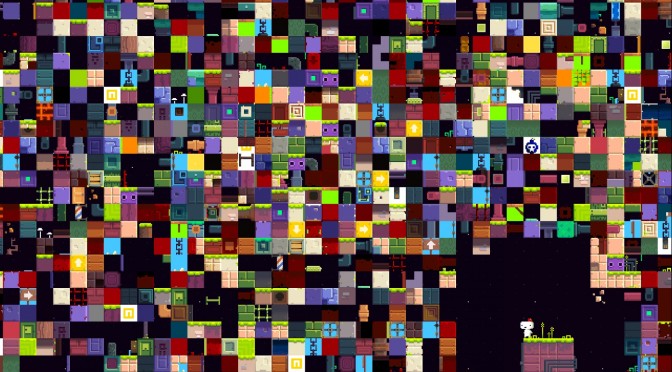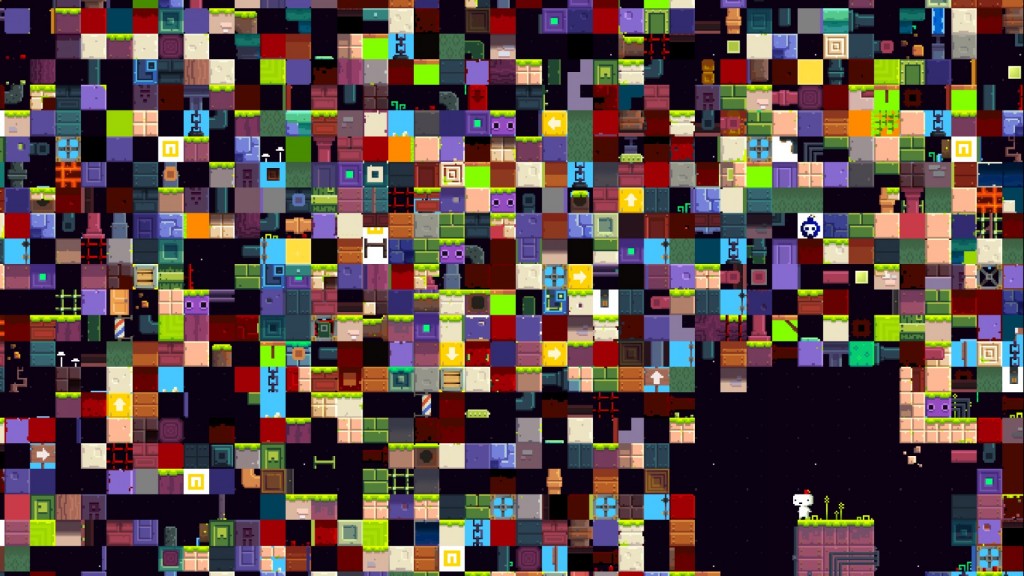Τις τελευταίες μέρες απλά δεν μπορώ να ησυχάσω. Eίμαι συνεχώς στην τσίτα, λες και κάτι μέσα μου είναι ανεκπλήρωτο. Αν θέλω να είμαι πραγματικά ειλικρινής με τον εαυτό μου, κατα βάθος τα πράγματα είναι έτσι εδώ και χρόνια. Ελπίζω ότι γράφοντας τα παρακάτω θα με μπορέσω να ξεφύγω για λίγο από την τρέλα μου και θα δω τα πράγματα αλλιώς.
Στις 7 Ιανουαρίου φεύγω για τη Βουλγαρία, όπου θα μείνω για 9 μήνες για να κάνω το EVS μου στην κεντρική βιβλιοθήκη της Σόφιας. Είμαι ενθουσιασμένος για τις πολύτιμες νέες εμπειρίες και την αλλαγή στην καθημερινότητα που θα μου προσφέρει αυτή η ευκαιρία – μετά από 2 χρόνια στην Αθήνα, ήταν νομίζω καιρός! – όμως η απόσταση μου απ’την Δάφνη βαραίνει την καρδιά και βρωμίζει τον ενθουσιασμό. Θα είναι μια καινούργια περιπέτεια, με νέες συγκινήσεις, θέλω να σκέφτομαι. Όμως αυτός ο χρονικός περιορισμός δημιουργεί μια ασφυκτική πίεση.
Συνεχώς πρέπει να γεμίζω τον χρόνο μου με κάτι για να νιώθω ότι έχω αξιοποιήσει τη μέρα μου όσο το δυνατόν «καλύτερα». Έχω σετάρει το HabitRPG μου (το οποίο τώρα είναι στο tavern εδώ και 3 μέρες), γράφω ένα-δυο morning pages (τις περισσότερες μέρες τουλάχιστον), προσπαθώ να κάνω πράγματα τα οποία θα με κρατήσουν μακριά από τον υπολογιστή, πιο κοντά σε φίλους και αγαπημένους ανθρώπους και τον δικό μου δημιουργικό εαυτό. Ξανά και ξανά όμως αποτυγχάνω. Αγοράζω κάθε μέρα παιχνίδια στα Steam Sales και όσο περισσότερο χαζεύω τις προσφορές, τόσο λιγότερο παίζω. Έχω βάλει στο reddit όριο αλλά χαζεύω άλλα sites. Όταν με καλούν φίλοι για να βγούμε, γκρινιάζω γιατί θέλω χρόνο μόνος μου – και συχνά, όταν τον έχω, δεν τον κάνω αυτό που ήθελα να τον κάνω αρχικά.
Νιώθω τόσο πνιγμένος από το πόσο μικρές είναι οι μέρες και το πόσα θέλω να κάνω, πόσα πράγματα πρέπει να αφαιρέσω από το νοητό checklist – γιατί το να έχεις ένα πραγματικό είναι “πιεστικό” – που όλο αυτό μου έχει δημιουργήσει άγχος, stress, την αγωνία να είμαι πάντα ο καλύτερος που μπορώ να είμαι… Κι έτσι, το να κάτσω και όντως να απολαύσω ένα βιβλίο, μια ταινία, ένα game, μουσική, μια βόλτα, ένα δοκιμάσω κάτι νέο ή άλλα πράγματα τα οποία με γεμίζουν κανονικά όταν είμαι μόνος, γίνεται πια μια διαρκής απορία: χρησιμοποιώ τον χρόνο μου με τον καλύτερο δυνατό τρόπο;
Άλλα τρία βιβλία για το Goodreads Challenge 2013, για να φτάσω τα 45 βιβλία – ξεχνάω ότι δεν είναι παρα ένας αριθμός. Tουλάχιστον 3 παιχνίδια που θέλω να τερματίσω πριν φύγω – γιατί μετά ποιος ξέρει αν και πότε θα μπορώ να παίξω στο λάπτοπ; 305 διαφορετικά πράγματα που είναι «στην λίστα μας» με τη Δάφνη, από βόλτες με άγνωστα λεωφορεία με τις φιλμάτες μας μηχανές μέχρι ταινίες που θέλουμε να δούμε, Breaking Bad, fondue ή στέκια που έχουμε πει εδώ και μήνες να επισκεφθούμε μαζί για το Spotted by Locals, τώρα που υπάρχει λίγος χρόνος ακόμα… Ο οποίος πιέζει όλο και πιο ασφυκτικά, και όσο πιο ασφυκτικά πιέζει, τόσο γκρινιάζεις ότι δεν μπορείς να αναπνεύσεις και στην πραγματικότητα δεν κάνεις, δεν αναπνέεις, δεν αφήνεσαι!
Δεν είμαι έτσι κανονικά. Δεν πιστεύω στα γεμάτα ημερολόγια και στις ατζέντες, στον αυστηρά κατανεμημένο χρόνο για μάξιμουμ αποδοτικότητα, στο παραγέμισμα κάθε λεπτού της ημέρας για να μην πάει ούτε μια στιγμή χαμένη στη μαύρη τρύπα της απραγίας! Είναι ένα σκοτεινό μονοπάτι που εύκολα οδηγεί στην τρέλα, όπως πολλοί πολιτισμοί της Δυτικής και Βόρειας Ευρώπης κι όχι μόνο, που λειτουργούν υπο ένα τέτοιο καθεστώς, μπορούν να μας δείξουν. Θυμάμαι τη Μόμο και τους γκρίζους άντρες, μερικές φορές, όταν κάνω αυτές τις σκέψεις, και νιώθω ακόμα περισσότερες τύψεις που έχω πέσει σε αυτή την παγίδα.
Kανονικά πιστεύω στην τεμπελιά, στην ανεμελιά, στο πρόγραμμα το οποίο φτιάχνεται μόνο του και προσαρμόζεται στις συνθήκες και στο πώς έρχονται τα πράγματα. Γενικά πιστεύω στη ροή, στο ρεύμα (the flow), το οποίο με κάνει ακόμα πιο αγχωμένο τώρα: τι έχει την καθημερινότητα και τις ανάγκες μου αφύσικες; Πρέπει να είσαι ένας άκαμπτος άνθρωπος για να μπορείς να ακολουθήσεις ένα αυστηρό πρόγραμμα, και δεν θέλω να είμαι αυτός ο άνθρωπος, παρα τα όποια οφέλη, τα οποία αν με ρωτούσατε τώρα ποια είναι δεν θα μπορούσα να κατονομάσω.
Ξέρω όμως από πού προέρχεται αυτή η βιάση, αυτή η αδυναμία χαλάρωσης, αυτή η απόγνωση του «ΠΟΤΕ ΘΑ ΤΑ ΚΑΝΩ ΟΛΑ ΑΥΤΑ;;;» Είναι φυσικά το Ιnternet.
Πόσο συχνά ακούτε τα τραγούδια που ποστάρουν οι άλλοι στο facebook; Εγώ σχεδόν ποτέ, εκτός κι αν πρόκειται για ένα τραγούδι από κάποιον που ξέρω ότι έχει γούστο παρόμοιο με το δικό μου και επιπλέον δεν ακούω κάτι εκείνη τη στιγμή. Πόσο συχνά σας προτείνουν φίλοι media προς κατανάλωση – ταινίες, βιβλία, παιχνίδια, μουσική, σειρές… όλα αυτά τα οποία μας διασκεδάζουν, μας κάνουν να σκεφτούμε αλλά και δεν μας αφήνουν να σκεφτούμε ή να δημιουργήσουμε – και πόσο συχνά βλέπετε προτάσεις μέσα από το web; Με το Internet, ξαφνικά όλοι, είτε βρίσκονται στον άμεσο κύκλο σας, είτε στον ευρύτερο, είτε συνδέονται μαζί σας μέσω της κοινότητας στην οποία ανήκετε (δεν έχει σημασία αν είναι το φετιχιστικό σάιτ με φυστικοβουτυροφιλία ή κάτι όσο αθώο όσο το tumblr ή το deviantart), όλοι μπορούν να σας επηρεάσουν με το άρθρο τους, τα ποστ τους, τις κριτικές για τα αγαπημένα τους βιβλία.
Αν κάτι υπάρχει, υπάρχει στο νετ, κι αν κάτι υπάρχει στο νετ, ανάλογα τα σάιτ που μπαίνω, μου δίνεται φάτσα κάρτα στο πιάτο, στη μούρη, όλη μέρα, κάθε μέρα. Ξαφνικά πρέπει να διαβάσω όλα τα βιβλία που αρέσουν σε όλους, πρέπει να πάω στα μέρη που προτείνουν όλοι… Υπάρχει τέτοιος πλουραλισμός που ξεχνάμε, κι εγώ πρώτος απ’όλους, οτί απλά δεν γίνεται να τα κάνεις όλα. Είχα αναρτήσει κι ένα άρθρο εδώ σχετικά με αυτό ακριβώς, και με βοήθησε να το ξεθάψω: The Sad, Beautiful Fact That We’re Going To Miss Almost Everything.
Ψάχνοντας στο reddit (ναι ναι, ούτε καν στο ποστίο μου δεν μπορώ να συγκεντρωθώ, εννοούνται αυτά!) για θέματα σχετικά με το παραπάνω άρθρο, έπεσε η ματιά μου σε αυτό το πολύ καλό το οποίο περιγράφει αρκετά καλά την περίπτωση μου, γιατί το περισσότερο άγχος μου για κάποιο λόγο δημιουργείται κυρίως από τα games. Ο τύπος ανέλυσε το γιατί μια χαρά (ειδικά αν λάβετε υπ’όψη σας και το τι διάολος είναι το Steam): Steam Library Fatigue
Πριν λίγες μέρες είχα ξυπνήσει με πολλά πράγματα στο κεφάλι μου. Είχα να κάνω το Skype Call με το Εμείς κι ο Κόσμος για τη Σόφια, δεν είχα προλάβει να γράψω τα morning pages μου και για άλλο ένα βράδυ έπρεπε να βγω (νομίζω ότι μέρος αυτού του άγχους είναι ότι έχω περάσει το πολύ ένα-δυο βράδια μόνος, ή έστω στο σπίτι, τις τελευταίες δυο βδομάδες). Αντί να είμαι ευγνώμων που τελικά έχω την ευκαιρία να βλέπω τους ανθρώπους που σύντομα πλέον δεν θα μπορώ για αρκετό καιρό, γκρινιάζω έτσι… Τραβάτε με κι ας κλαίω: απ’τη μία είμαι μοναχικός και γουστάρω, απ’την άλλη θέλω περισσότερη επαφή…
Τέλος πάντων, βρέθηκα με τον Φάνη και του εξήγησα γιατί ένιωθα αυτό το άγχος. Αναγνώρισα σε αυτά που είπα και που είχα ανάγκη να του τα πω ότι υπάρχει ένας ψυχαναγκασμός σε αυτά τα συναισθήματα. Κι εκείνος μου το είπε: «είναι απλά παιχνίδια, χαλάρωσε. Και τα 45 βιβλία είναι ήδη πολλά!»
Η απάντηση μου: «Δεν ξέρω αν είναι πολλά, κάποιοι στο Goodreads διαβάζουν 100.»
Τσουπ! Να το πάλι: δεν μπορώ να σταματήσω να συγκρίνομαι με ό,τι υπάρχει εκεί έξω και να μου δημιουργώ άγχη τα οποία ίσως εκφράζουν το μόνιμο και υποβόσκον κόμπλεξ κατωτερότητας μου. Ψάχνω τι θα καταφέρει να δείξει -περιέργως πρώτα στον εαυτό μου- ότι είμαι σε μια καλή πορεία και δεν χάνω ευκαιρία να βελτιωθώ. Θέτοντας το έτσι ακούγεται σχεδόν άρρωστο, όμως είναι γεγονός. Το πρόβλημα μου δεν είναι ότι ψάχνω κάτι το οποίο στο μυαλό μου θα με κάνει καλύτερο ή ισάξιο με τους άλλους, αυτό από μόνο του είναι νομίζω κάτι το υγιές και κάτι το οποίο φέρνει κυρίως καλές αλλαγές.
Το πρόβλημα είναι σε τι ψάχνω το ego boost, ότι ακόμα για κάποιον λόγο ψάχνω την προσωπική αναγνώριση και αξία σε βλακειούλες όπως τα παιχνίδια που έπαιξα ή τα βιβλία που διάβασα, πράγματα που σε τελική ανάλυση φαίνονται να έχουν σημασία μόνο στο ίντερνετ και πολύ λίγο ή καθόλου στην «πραγματική ζωή». Αν περνούσα λιγότερο χρόνο ονλάιν είμαι σίγουρος ότι θα ένιωθα πολύ λιγότερο αυτούς τους περίεργους ψυχαναγκασμούς. Κι όμως, οι περισσότερες προσπάθειες μου μέχρι σήμερα δεν ήταν τόσο ριζοσπαστικές ή αποτελεσματικές…
Με όλα αυτά, οι στόχοι μου, τουλάχιστον σε υποσυνείδητο επίπεδο, περιερίζονται και γίνονται εσωστρεφείς και καθόλου δημιουργικοί. Σκοτώνω τον δημιουργικό μου εαυτό κάθε μέρα με τις μαλακίες μου, προτιμώντας να μη ζω αλλά να σκαλώνω. Είχα διαβάσει κάποτε στο HighExistence ότι για να είσαι ευτυχισμένος-δηλαδή για να μην βαριέσαι- πρέπει η αναλογία δημιουργίας-κατανάλωσης σου να είναι το λιγότερο 1 προς 10. Ακούγεται πολύ, έτσι δεν είναι; Έτσι όμως έχουμε καταντήσει, να μας φαίνεται πολύ. Και έτσι όπως πάω εγώ, αυτή η αναλογία έχει ξεπεράσει το 1 προς 5000 και κάθε μέρα αυξάνεται, κι εγώ ποτέ δεν χορταίνω. Γιατί με σταματάω με την παθητικότητα της διαρκούς κατανάλωσης, πχ με το να παίζω και να διαβάζω; Γιατί αυτό είναι το εύκολο, το γνωστό. Αυτό το οποίο δεν χρειάζεται να περάσει την κρίση κανενός, ή να έχει την συμμετοχή κανενός εκτός του εαυτού μου. Μου επιτρέπει να περιορίστώ σε στόχους που η επίτευξή τους δεν θα με αναγκάσει να περάσω το κατώφλι της φούσκας μου.
Και να πεις ότι αυτές τις συνειδητοποιήσεις τις έκανα τώρα… Όχι, τις κάνω ξανά και ξανά χωρίς να αλλάζει κάτι πρακτικά.
Δεν λέω, έχω κάνει μεγάλα βήματα τον τελευταίο καιρό. Μεγαλώνω τα όρια του comfort zone μου, τολμάω περισσότερο, είμαι σε θέση να αμφισβητήσω τον εαυτό μου και τις παλιές μου συνήθειες (σχεδόν νιώθω άβολα όταν δεν το κάνω, άλλο θέμα από εκεί) και όταν μιλάω για κόμπλεξ κατωτερότητας, έχει περισσότερο να κάνει με τα υπολείμματα αυτού και όχι κάτι πραγματικά καταστρεπτικό. Είμαι πολύ πιο άνετος με την ιδέα ότι κάποιοι θα με αγαπάνε αλλά και κάποιοι αναγκαστικά θα με αντιπαθούνε και εμπιστεύομαι περισσότερο το ότι έχω κάτι να πω, κάτι να προσφέρω, το οποίο δεν θέλω να το κρίνω και θέλω να το προστατέψω. Για όλα αυτά είμαι περήφανος και ευχαρίστημενος, και με το δίκιο μου.
Με όλα αυτά όμως, είναι αστείο όταν με πιάνει το άγχος ότι δεν έπαιξα το τάδε ή το δείνα παιχνίδι, δεν είδα εκείνον ή εκείνην, δεν προετοίμασα το δώρο που είχα στο μυαλό μου, απέτυχα να κάνω και τα 55 πράγματα τα οποία χτες υποσχέθηκα στον εαυτό μου ότι θα έκανα γιατί είναι τόσο ενδιαφέροντα. Μάλλον κάποια πράγματα ποτέ δεν τα ξεπερνάς πραγματικά ποτέ, παρα πρέπει συνέχεια να είσαι σε επιφυλακή ώστε να θυμίζεις στον εαυτό σου ότι παρ’όλο που είναι κομμάτια του εαυτού σου δεν χρειάζεται να τα έχεις μαζί σου παντού και πάντα, μπορείς να υπάρξεις και χωρίς αυτά, τουλάχιστον μέχρι να αναγεννηθούν σε τυχαία στιγμή, δυνατότερα ή -ελπίζεις- πιο αδύναμα.
Όλα αυτά με εμποδίζουν να έχω τη ζωή που πραγματικά θα ήθελα να να έχω, αλλά είναι τάσεις και συνήθειες που δύσκολα κόβεις και αναθεωρείς, ακόμα κι αν ξέρεις ότι θα μπορούσες να κάνεις πολύ καλύτερα πράγματα με τον εαυτό σου…
Να το, να το! Το κάνω πάλι!
 Writing Comedy: A Guide to Scriptwriting for TV, Radio, Film and Stage by Ronald Wolfe
Writing Comedy: A Guide to Scriptwriting for TV, Radio, Film and Stage by Ronald Wolfe











